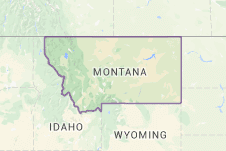… For drug testing in Montana, employers must create a written substance abuse policy, which must contain a description of:
1. Applicable legal sanctions under federal, state, and local law for the unlawful manufacture, distribution, possession, or use of a controlled substance;
2. The employer’s program for regularly educating or providing information to employees on the health and workplace safety risks associated with the use of drugs and alcohol;
3. The employer’s standards of conduct that regulate the use of controlled substances and alcohol by employees;
4. Available employee assistance programs;
5. Sanctions that the employer may impose on an employee who violates the policy or tests positive for the presence of drugs or alcohol;
6. Types of drug and alcohol tests to be used;
7. Controlled substances for which the employer intends to test and a state alcohol level above which a tested employee must be sanctioned;
8. The employer’s hiring policy with respect to prospective employees who test positive;
9. The procedures that will be followed to conduct the testing program; and
10. Confidentiality requirements under Montana’s workforce drug and alcohol testing act.
Employers are not required to accommodate an employee’s use of medical marijuana. Further, employers may prohibit employees’ use of medical marijuana in employment contracts, and may fire employees who use medical marijuana.
Montana’s drug testing law applies to applicants and employees in limited circumstances.
An employee is defined as an individual who engages in the performance, supervision, or management of work in a hazardous environment, security position, position affecting public safety, or fiduciary position for the employer (independent contractors excluded).
Drug testing in Montana must follow DOT – SAMHSA guidelines. As part of a qualified drug testing program, employers are permitted to:
1. Require an applicant to submit to testing as a condition of employment;
2. Randomly test employees if the company’s substance policy includes one or both of the following procedures: a) the establishment of a date when all salaried and wage-earning employees will be required to undergo controlled substance or alcohol testing, or both; or b) the establishment with a third-party administrator of such a program;
3. Require an employee to submit to follow-up testing if the employee has previously tested positive;
4. Require an employee to be tested if the employer has reason to suspect that the employee’s faculties are impaired on the job as a result of the use of drugs or alcohol; and
5. Require an employee to be tested for drugs or alcohol if the employer has reason to believe that the employee’s act or failure to act is a direct or proximate cause of a work-related accident that caused death, personal injury, or property damage in excess of $1,500.
Employers must provide a copy of the test report to an employee who has been tested.
An employee who tests positive must be given the opportunity to be retested by an independent laboratory that he/she selects. Additional tests are at the employer’s expense if the results are subsequently negative, or at the employee’s expense if the results are subsequently positive.
If you need a drug-testing program or a drug-free workplace program in Montana, contact National Drug Screening for immediate service.







